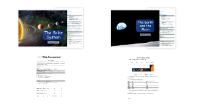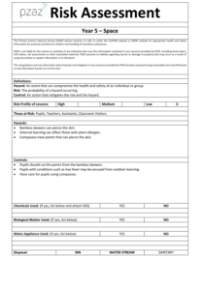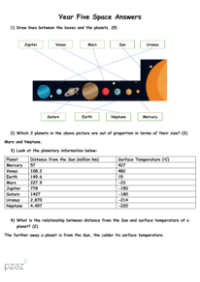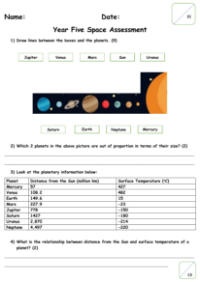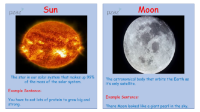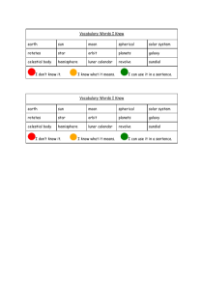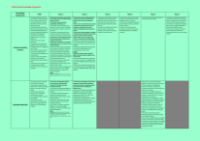Earth and Space - Knowledge Organisers
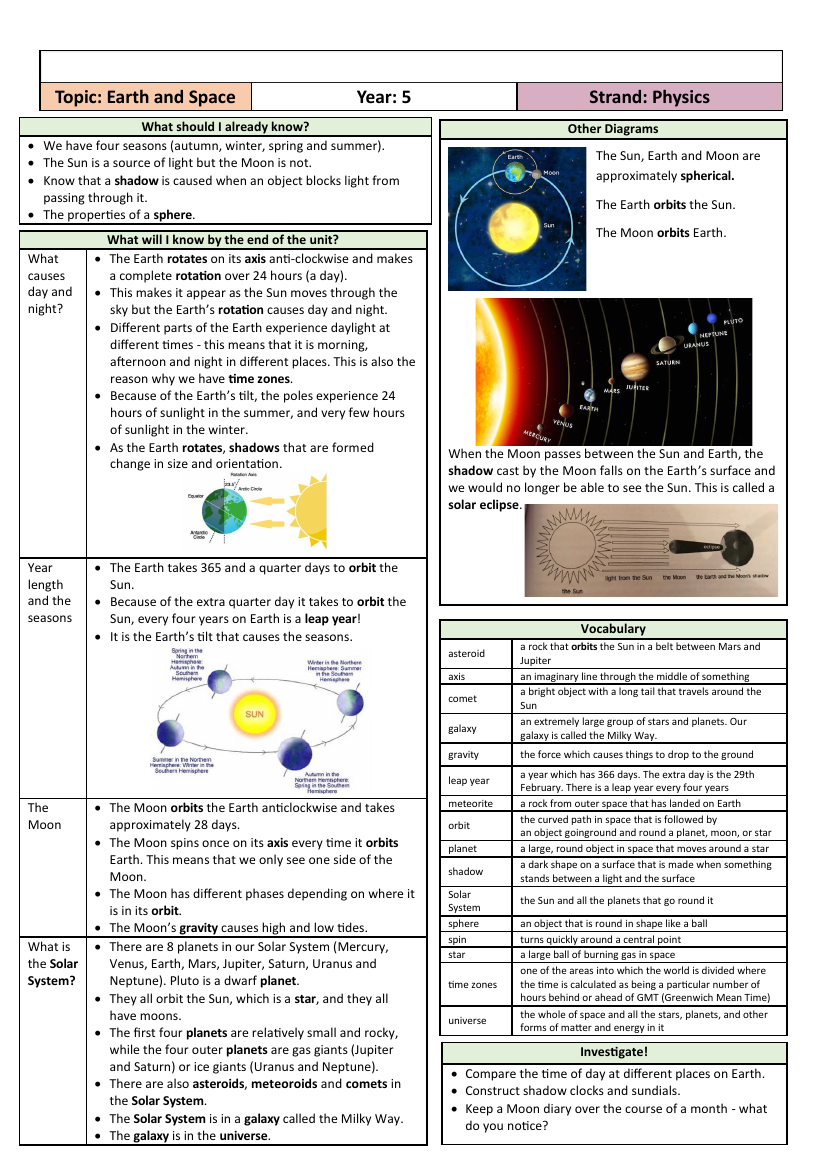
Science Resource Description
At the start of an educational unit on Earth and Space, Year 5 students should already be familiar with the four seasons, the fact that the Sun is a source of light while the Moon is not, the concept of shadows, and the properties of a sphere. By the end of the unit, they will have deepened their understanding of astronomical phenomena. Students will learn that the Earth's rotation on its axis, which takes 24 hours, causes day and night, and that different parts of the Earth experience daylight at varying times due to this rotation, leading to the creation of time zones. They will also discover that the Earth's tilt on its axis results in varying lengths of daylight at the poles and is responsible for the changing seasons over a 365 and a quarter day orbit around the Sun, which includes an additional day every four years, known as a leap year.
The unit will further explore the Moon, explaining that it takes approximately 28 days to orbit the Earth and that we only see one side due to its synchronous rotation. Students will learn about the Moon's phases and its gravitational influence on Earth's tides. The Solar System will be introduced, highlighting the eight planets, their moons, and the distinction between rocky planets and gas or ice giants. The presence of asteroids, meteoroids, and comets, along with the concept of the Milky Way galaxy being part of the universe, will be covered. Students will also understand that a solar eclipse occurs when the Moon passes between the Sun and Earth. The unit aims to enrich students' vocabulary with terms like asteroid, axis, comet, galaxy, gravity, leap year, meteorite, orbit, planet, shadow, Solar System, sphere, spin, star, time zones, and universe. They will be encouraged to engage in practical investigations such as comparing times across the globe, constructing shadow clocks, and keeping a Moon diary to observe its phases.

